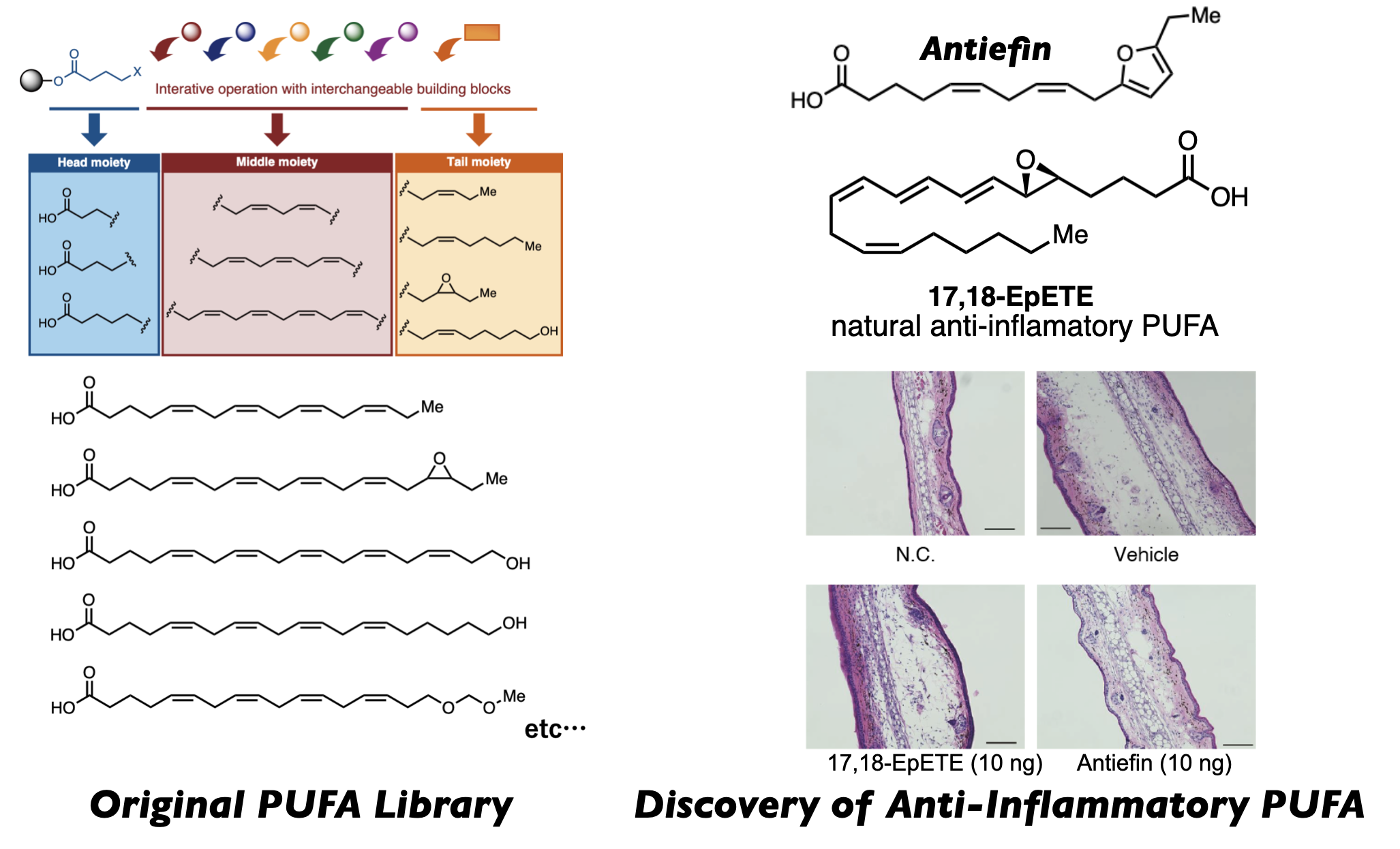Project 3. Chemical biology and Drug Discovery of lipids
Lipids and fatty acids constitute the “fourth major biomolecule” with diverse biological roles, yet their chemical complexity has long limited systematic study. By integrating combinatorial and automated synthesis, we are establishing a platform to generate highly diverse lipid libraries not attainable elsewhere. Using these unique molecular collections, we elucidate lipid-mediated biological and pathological processes and advance next-generation lipid-based therapeutics.
Full Solid-Phase Synthesis of Polyunsaturated Fatty Acids

Polyunsaturated fatty acids (PUFAs) are fatty acids with double bonds and represent an important class of lipid molecules. It is estimated that there are over 10,000 species of lipids and fatty acids in living organisms, yet many of their functions remain unknown. Moreover, PUFAs are expected to be useful for the prevention and treatment of inflammatory diseases, metabolic disorders, neurodegenerative diseases, and cancer. Therefore, there is great interest in developing novel functional PUFAs based on an understanding of their structure and function, but their molecular design remains an unexplored area. A major reason for this is that synthetic techniques for fatty acids and lipids have not been sufficiently established, making them difficult to obtain.
In recent years, we have pioneered the world’s first full solid-phase synthesis method for PUFAs. Using this technology, we are constructing PUFA libraries and tackling the challenge of elucidating biological phenomena involving PUFAs, as well as creating new functional PUFAs. We are also currently working on establishing synthetic methods for unique PUFA structures, including trans-type and conjugated olefins in addition to cis-type PUFAs, and to develop automated synthesis technologies.
[Reference] Nat. Chem. 2025, DOI: 10.1038/s41557-025-01853-5.
Biology of Lipids and Fatty Acids

Based on the full solid-phase synthesis method for polyunsaturated fatty acids (PUFAs), we have realized the construction of a unique PUFA library that is available nowhere else in the world. Recently, by utilizing this PUFA library, we discovered an artificial fatty acid called “antiefin,” which exhibits potent anti-inflammatory activity compared to the natural fatty acid metabolite 17,18-EpETE.
We are currently conducting cell-based assays using this proprietary fatty acid and lipid library to elucidate the functions of lipids and fatty acids involved in inflammation, proliferation, aging, and the regulation of cellular functions and fate, as well as to advance the creation of functional lipids and fatty acids.
[Reference] Nat. Chem. 2025, DOI: 10.1038/s41557-025-01853-5.
